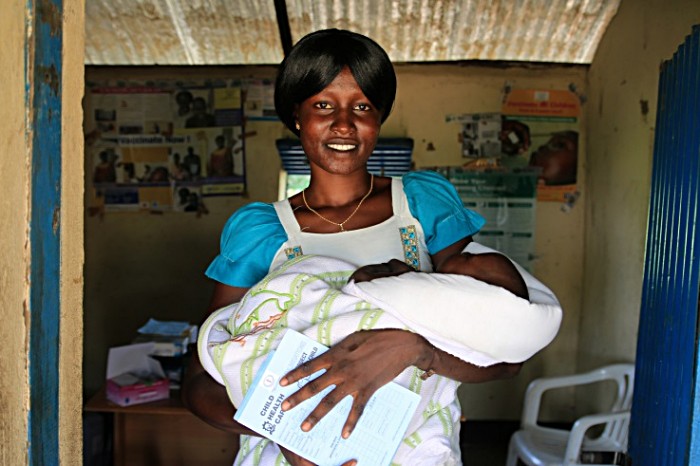
Children in the world’s poorest countries could receive the pentavalent vaccination to fight off five life-threatening diseases after UNICEF reached a deal with six of its suppliers to cut the price of the treatment by half.
The agreement allows the child rights and emergency relief organisation to purchase 450 million doses at an all-time low average of 84 cents a dose.
Each dose of the pentavalent vaccinations combats five diseases, including diphtheria, tetanus, pertussis, hepatitis B and Haemophilus influenzae type b. It will be distributed to 80 countries supported by the Gavi Alliance,where it will be used to protect tens of millions of children. Donors and governments will also be able to access the new price and could with this advantage save up to US$366 million in development health care spending annually.
“Ninety percent of the world’s children under five who die from vaccine-preventable diseases live in countries whose vaccine supply is no longer fully funded by donors,” said Shanelle Hall, director of UNICEF’s supply and procurement headquarters.
“For the most vulnerable children in the world, pricing can make a difference between life and death,” she added.
Over the past 15 years, Gavi and its partners the Bill & Melinda Gates Foundation, World Health Organization and UNICEF, have negotiated significant reductions in the cost of the pentavalent vaccine after consistently successful immunisation coverage led to a subsequent rise in demand for the vaccine. In 2015, UNICEF purchased over 235 million doses of the vaccine, up from just 14.5 million in 2011.
Gavi reports that the pharmaceutical industry has increased global production of the pentavalent vaccine from 20 to 400 million doses. However, after a shortage of the yellow fever vaccine in Africa caused international alarm following an outbreak reported by Development Finance in July and August 2016, the alliance has broadened its supplier base in a bid to reduce the risk of a similar shortage of the pentavalent vial.
Collaboration between Gavi, the Bill & Melinda Gates Foundation and UNICEF has leveraged significant donor funding and improved demand forecasts and special contracting terms through multi-year supplier contracts, as well as helped grow the pentavalent vaccine supplier base to eight sources in 2016, from just one in 2001.
“The market for five-in-one vaccines is now a lot healthier than it was just a few years ago thanks to our collective efforts to grow a base of vaccine suppliers,” said Dr Seth Berkley, CEO of Gavi, the Vaccine Alliance, adding:
“Gavi [now] estimates that 5.7 million deaths will be averted thanks to pentavalent vaccination in Gavi-supported countries between 2011 and 2020.”

